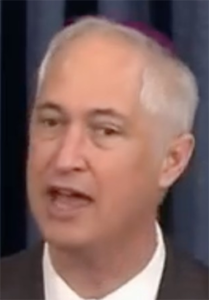A. Rabbi Beals referenced the Babylonian Talmud, B’rachot 8b which says, “Show respect to an old man who has forgotten his learning through no fault of his own, for we have learned that the fragments of the old tablets were kept alongside the new tablets in the Ark of the Covenant.” Said Rabbi Beals, “This is an example of how we honor our elders and pass on their words, their values, their lessons, and their legacy, not by casting them out, but by holding them close even as the new leadership takes over, as from Moses to Joshua.”
B. Rabbi Beals quoted the great 20th century theologian Rabbi Abraham Joshua Heschel, who said, “May I suggest that man’s potential for change and growth is much greater than we are willing to admit, and that old age be regarded not as the age of stagnation but as the age of opportunities for inner growth. The years of old age…are indeed formative years, rich in possibilities to unlearn the follies of a lifetime, to see through inbred self-deceptions, to deepen understanding and compassion, to widen the horizon of honesty, to refine the sense of fairness.” Rabbi Beals added, “It is not my place to tell people who they should vote. But I do hope that people will find meaning in the words of our tradition and the messages of our scholars. The concept of unlearning the follies of our lifetimes in our later years is such a powerful message about the value of the elderly in our society, be they strangers or our own grandparents, be they our employers or our employees, and especially if, like President Biden, they are our leaders.”
C. Rabbi Beals quoted from the Midrash B’reishit Rabbah, 59:6, “Some people have years, and others have old age.” The Rabbi went on to say, “These nine simple words in so many ways reflect the values that we aspire to in Judaism, living a life of meaning and a life of wisdom. I often get the honor to work with young people, for example listening to the words of Torah offered by our bar and bat mitzvah students, and even they at the age of 13 reflect that they have years, while others in their 60’s, 70’s or ‘80s exhibit age but not value. I am honored to be friends with President Biden, a man who leads so consequentially because of his years.”
D. Rabbi Beals compared Joe Biden, near the end of his political journey at age 81 to Moses, who was 120 as he reached the end of his journey as leader of the Jews on the exodus from Egypt to the Promised Land. Said Rabbi Beals, “In our Jewish tradition, we don’t say we’re going to scrap the five Books of Moses because by the 120th year he’s not the man he was 40 years ago,” implying that though Biden may have lost some of his strength by this time, that should not negate his legitimacy as a leader.
E. Rabbi Beals compared Joe Biden, near the end of his political journey at age 81 to Moses, who was 120 as he reached the end of his journey as leader of the Jews on the exodus from Egypt to the Promised Land. Said Rabbi Beals, “We wish people to be 120. Does it mean we want them to be at 120 how they were at 80? No. We value the entire person.” He also noted that Moses, at 120, was “a little cranky,” implying that we should recognize that if we could put up with Moses at 120, we can surely deal with Biden at age 81.

